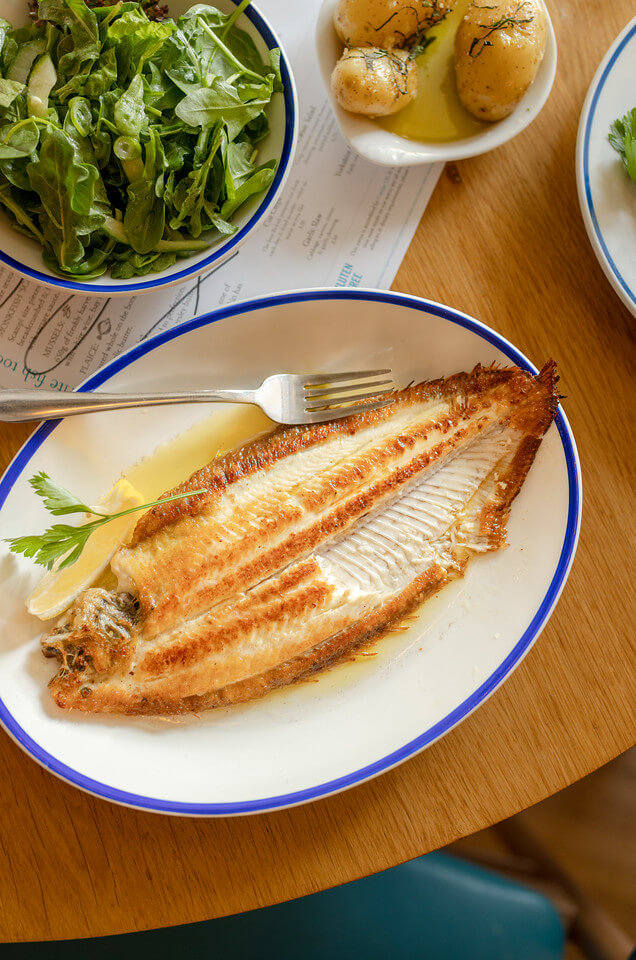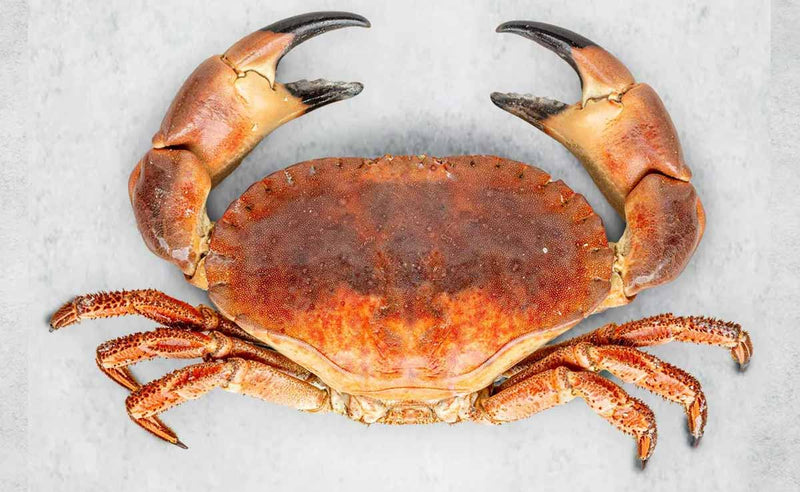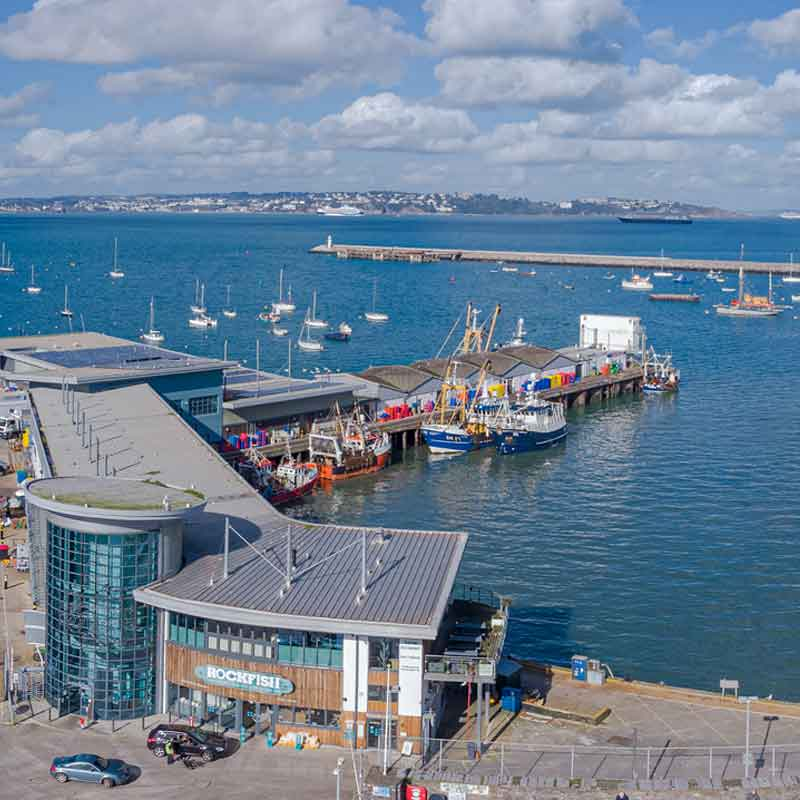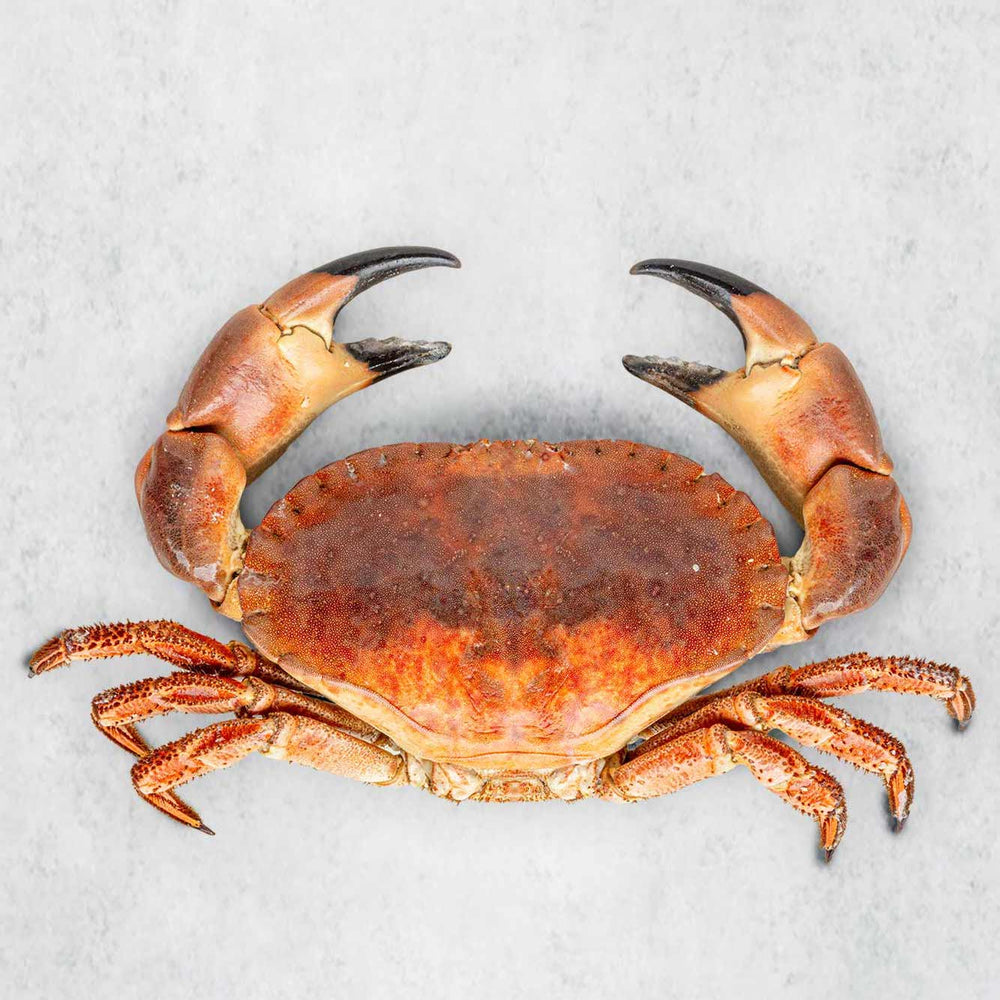Dover Sole: The World's Poshest Fish
Quick read (under five minutes)
Champagnes from Northern France. Melton Mowbrays are from the sleepy Midlands market town.
But Dover sole? Not actually from Dover. Not really. Sure, one or two errant fish may be found swimming the strait south of the famous white cliffs. But it’s well known that the plumpest and best, most sought-after Dover sole are caught right here in Brixham.
Fish have been landed and sold at Brixham Fish Market since the fourteenth century, and the history of the port’s Dover sole trade extends just as long.
Today, Brixham is England’s largest fish market. Landing 40 different species of fish with a total value last year of over £60 million pounds. Of all the fish caught here, 70% are shipped abroad to Holland, France, Italy, and Spain, where the bounty of the British seas sends continental chefs weak at the knees.
FISH FIT FOR A KING
Throughout the nineteenth and early twentieth centuries, sole was the most prized of all sea fish (rivalled only maybe by turbot.)
The size of the sole served reflected your level of success on the slimy social ladder. The upper echelons ate big, succulent, fillets of sole, while the next social tier made do with smaller soles called ‘slips’ and ‘tongues.’
So revered was the flesh of the Dover that it sent classical chefs into manic spirals of decadent excess. Chef Louis Saulnier’s 1914 bible of French gastronomy Le Répertoire de la Cuisine features no fewer than 340 ways of presenting sole fillets.
Just last year, one of Mayfair’s oldest hotels, Brown’s, served Dover Sole for Charles III’s coronation calling it “a fish fit for a King.”
COOKING DOVER SOLE
A grilled Dover sole with a lemon and caper dressing is a thing of pure miracle. You can skip church on Sunday, because the taste of sweet Dover with that citrus twang will be your ticket straight to the pearly gates.
Chefs have long competed to shower the Dover sole with the richest, most extravagant, and complex sauces and accompaniments. Black truffles, Muscat grapes, foie gras, wild ceps, and champagne.
But you mustn’t be put off by the fact that this fish is posher than David Cameron. Because cooking a Dover is really very easy. They are delicious simply grilled on their own, or oven roasted. The flavour speaks for itself.
One of our favourites is to cook sole in a bag. It’s our take on the French method of ‘en papillote.’ Make a large sleeping bag out of greaseproof paper for your Dover to lie in, add a generous spoonful of one of our butters (we suggest garlic) and whack it in the oven. The result is a Dover that is half-steamed, half-baked, and infused with creamy-buttery garlic. Delicious.
EATING DOVER
At Rockfish you’ll have heard us say it a million times: fresh is best. We squawk it relentlessly, like some evangelical seagull colony.
But surprisingly, when it comes to eating Dover sole, they improve with a little ageing. It goes against everything we’ve ever said that a fish can be too fresh. But the prevailing wisdom with Dover sole is that it needs at least 24 or even 48 hours to reach its best.
It's the fishy equivalent to hanging game or ageing beef. Your Dover needs to ripen to allow its flesh to become tender and its taste to mature.
When you buy Prime Dover sole from our Online Seafood Market the sole has been shipped the day it was landed. By the time it gets plonked on your welcome mat it’ll be perfect to eat.
In some of the more gastronomically inventive parts of Europe, it’s even claimed that a Dover sole is best served after 10 days! But you’d be braver than us if you believe that.
THE BOTTOM LINE
Dovers are night feeders. They skulk the seabed looking for crabs, worms and mussels hiding amongst the mud. They have a vicious jaw that they can dislocate to allow them to latch onto their prey. It’s because of their nocturnal habits that Dover sole are rarely caught on rod and line. Instead, they are predominately caught on trawlers like the Rockfisher. All fish bought on our Online Seafood Market is traceable to the boat on which it was landed – the boat name will even be printed on the label.
In July the MSC published a warning: Dover sole caught in the Irish sea must be avoided. Stock levels had fallen below biological limits and there was no sufficient recovery plan in place to justify them as a sustainable fishery.
Where your Dover sole is caught is important. Here in Brixham wild caught Dover is rated the Best Choice by the MSC. There are management measures in place to preserve the long-term catching of this high-class delicacy.
Winter for any fishermen is not easy. Winds whip across the Atlantic at such speeds they’ll chill the very marrow in your bones. But there are few sights more warming to a Brixham fisherman than that of a trawl net filled-fat with this delicious fish fit not just for a king, but for us commoners too.



